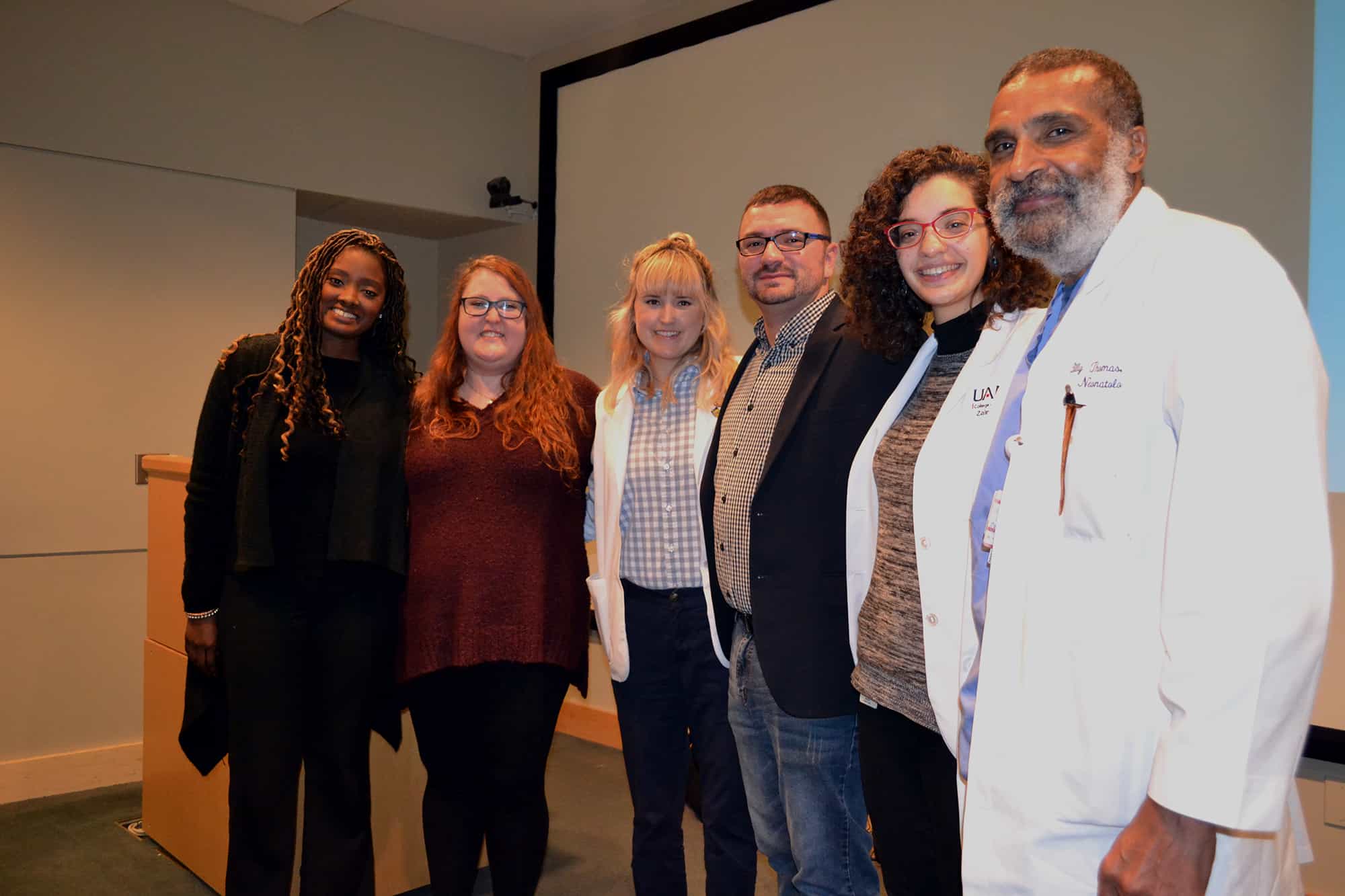Students Learn About Services for LGBTQ+ Patients
| Future health care professionals from throughout UAMS recently gathered to learn about the specific needs of, and services available to, the LGBTQ communities in the Little Rock metro area.
The talk, which featured Zack Baker, the education and outreach coordinator from Planned Parenthood Great Plains, was presented by the UAMS Rainbow Health Alliance and sponsored by the UAMS Center for Diversity Affairs.
“The timing of today’s presentation, falling on Human Rights Day and the 70th anniversary of the signing of the Universal Declaration of Human Rights by the United Nations General Assembly, could not have been better,” said Billy Thomas, M.D., vice chancellor for diversity and inclusion. “The mission of UAMS boils down to being inclusive and providing equitable quality care to an entire population. Access to and delivery of equitable quality health care is a basic human right and must continue to be part of our overall mission.”
Baker offered a short presentation highlighting the local availability of very specific needs of certain populations, such as speech therapy for those undergoing gender transition. Then he opened the floor to students’ questions.
Those ranged from appropriate populations for newer medications intended to combat HIV infection, called post- and pre-exposure prophylaxis, or PEP and PrEP, to discussion of insurance coverage for LGBTQ+ health needs. However, one particular question ultimately captured the larger theme of the discussion when it was asked, “as a future health care professional, what should I be anticipating in terms of questions these patients might have for me.”
“For a lot of primary care physicians, it can be very uncomfortable to talk about some of these things, even supporting safe sex,” said Baker. “But really it’s not very difficult.”
In addition to encouraging students not to shy away from these conversations, he pointed them to resources, such as a toolkit prepared for health care providers of LGBTQ+ individuals created by the Human Rights Campaign. Baker noted that some doctors, for instance, don’t realize they can proscribe a medication such as PrEP, thinking they need to refer the patient to a specialist.
“Any primary care physician can proscribe this medication,” he stressed. “There really needs to be a lot more training on this issue.”
Thomas said he believed events like this one – organized by students and steered by their questions – will help with that very training.
“The Rainbow Alliance is primarily a student-led organization that has consistently highlighted and supported the need for equitable health care in the LGBTQ+ community,” he said. “Although we have made significant progress over the past several years, we have an ongoing need for more campuswide faculty support. In the end, it is about health care and improving the lives of fellow human beings.”
